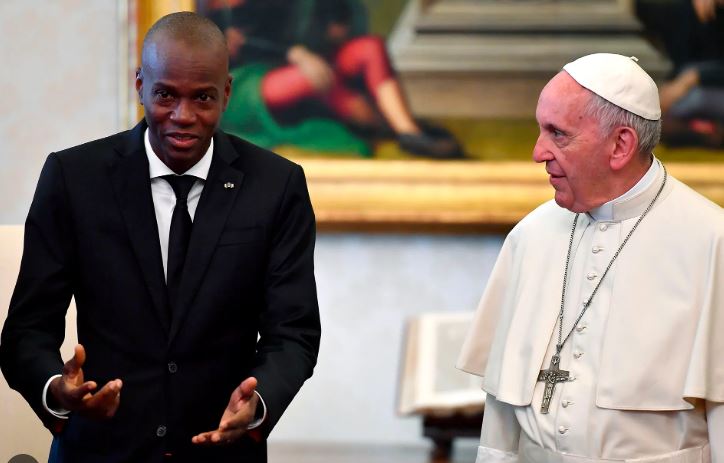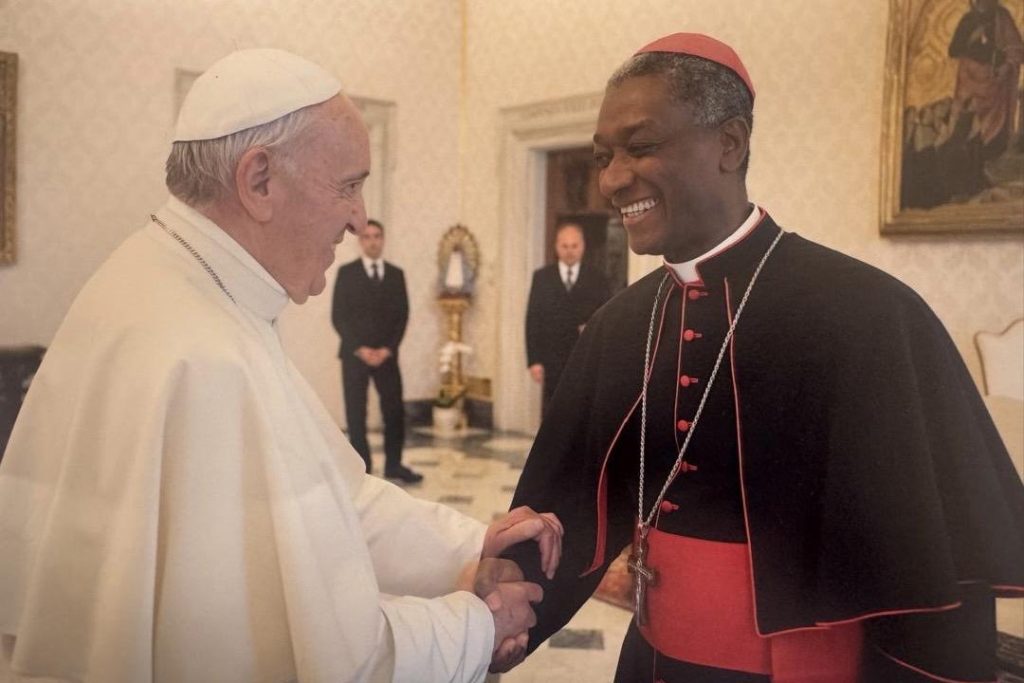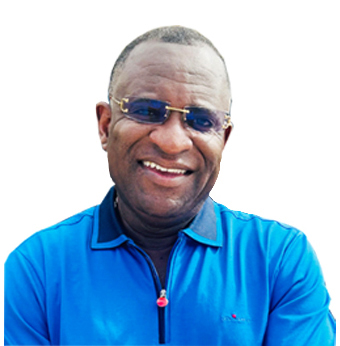MIAMI — At a time when Haiti faced some of the most harrowing crises in its modern history—spiraling gang violence, deep political instability, and systemic societal collapse—Pope Francis emerged as a rare and steadfast voice of compassion. Through public prayers, solemn appeals, and unwavering spiritual solidarity, the late pontiff cultivated a profound and enduring connection with the Haitian people. His moral leadership and pastoral presence left an imprint that transcends borders and time.
A Voice of Comfort in Times of Tragedy
Following the tragic assassination of President Jovenel Moïse in July 2021, Pope Francis was among the first international figures to express solidarity with the Haitian nation. He extended heartfelt condolences not only to the president’s family but to a grieving and traumatized people. His message, delivered with humility and sorrow, accentuated the spiritual weight of the moment and the moral responsibility of the global community.

That gesture, though symbolic, resonated deeply in Haiti, where many felt abandoned by the world. In the Pope’s words, Haitians found a reflection of their pain and a reaffirmation of their dignity.
A Call for Peace and the End of Violence
As Haiti continued to descend into violence driven by gang control and state collapse, Pope Francis refused to remain indifferent. Through multiple Angelus addresses and public homilies, he issued impassioned calls for peace, national reconciliation, and the cessation of bloodshed.
“I am close to the dear people of Haiti. I hope that the spiral of violence will cease,” he once proclaimed from the Vatican balcony, urging all stakeholders to seek the common good and rebuild a nation devastated by generations of trauma.
His appeals were not political—they were profoundly human, anchored in a vision of mercy and justice.
Solidarity with the Local Church
Pope Francis’ support extended beyond words. He stood firmly with the local Catholic Church in Haiti, which remains one of the few functioning institutions providing education, medical aid, and pastoral care across the country. Amid a disturbing rise in kidnappings—including the abduction of religious figures—Pope Francis denounced these acts and prayed publicly for the safe return of the victims.
His unwavering defense of the Church in Haiti was both spiritual and strategic: a recognition that faith-based institutions often serve as lifelines in places where the state has failed.
Elevating Haitian Leadership in the Global Church

In a historic and deeply symbolic act, Pope Francis appointed Haitian Bishop Chibly Langlois as the first cardinal in Haiti’s history. The appointment, which took place on February 22, 2014, was widely seen as a gesture of inclusion and recognition of the Haitian Church’s resilience amid hardship. Cardinal Langlois was also named Cardinal-Priest of San Giacomo in Augusta, a prestigious Roman title. This moment not only elevated Haiti within the global Catholic hierarchy but also reflected Pope Francis’ commitment to amplifying voices from the peripheries of the Church.
Illuminating a Nation’s Suffering
Throughout his pontificate, Pope Francis repeatedly brought international attention to Haiti’s escalating humanitarian crisis. He spoke openly about the displacement of families, the devastation of the healthcare system, and the pervasive hunger afflicting millions.
By naming these struggles with specificity, the Holy Father compelled the world to see Haitians not as numbers or headlines, but as brothers and sisters deserving of global empathy and action.
A Prophetic Call for International Solidarity
Pope Francis consistently urged the international community to go beyond symbolic gestures. He called for material solidarity: humanitarian aid, development investment, and lasting diplomatic engagement.
This appeal reflected the Pope’s broader theology of fraternity—a vision in which no nation, no matter how impoverished or politically troubled, should be excluded from the moral concern of the global family.
A Hopeful Vision for Haiti’s Future
Even in the face of despair, Pope Francis preached hope. He believed that Haiti could still be rebuilt—on a foundation of social justice, human dignity, and spiritual renewal.
“I hope the Haitian people may know a future of fraternal harmony and solidarity,” he once said, a line that reads now not only as a blessing but as a legacy to be honored.
Honoring the Memory of Pope Francis in Haiti
In a country where religious devotion runs deep, Haiti now has the opportunity to remember Pope Francis not only as a global figure, but as a spiritual friend—a shepherd who never turned his back in times of darkness.
His memory might be honored through:
National days of prayer and reflection led by Haitian clergy
Public Masses of thanksgiving in cathedrals and local parishes
Civic education programs that teach youth about global solidarity and human dignity
Media retrospectives and interfaith vigils that recount his consistent support
More than rituals, these acts can reaffirm Haiti’s own identity as a people of resilience, faith, and moral clarity.
A Final Reflection
While many global leaders came and went during Haiti’s long crisis, Pope Francis remained a constant presence—not through policy, but through presence. His moral clarity, his tenderness in the face of suffering, and his unwavering belief in the worth of every Haitian life stand as a testament to what spiritual leadership can mean in the modern age.
His connection to Haiti was not fleeting. It was a quiet covenant of prayer, pain, and hope—one that the Haitian people will not soon forget.

About the Author
As the founder and editor-in-chief of Le Floridien, Dessalines Ferdinand is dedicated to amplifying Haitian voices across the diaspora and offering thoughtful commentary on issues impacting the global Haitian community. With decades of experience in journalism and community advocacy, he continues to promote truth, dignity, and connection through storytelling.
